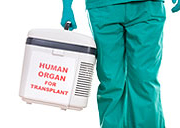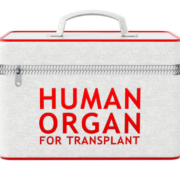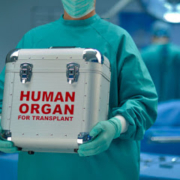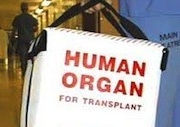Welsh plans to increase organ donation: costly waste of time and money

Not only are radical plans to introduce new legislations to increase organ donation on death in Wales going to cost millions of pounds, and be highly complicated to administer, they are also ‘ethically tricky,’ new research published in the journal Transplantation this month confirms.
The publication of two new journal articles on organ donation after death is well timed. The end of January sees the closure of a public consultation on plans to introduce new legislation to Wales which, it is claimed, will increase organ donation on death.
Plans are well underway in Wales to introduce an ‘opt-out system’ (otherwise known as ‘presumed consent’) which would permit doctors to remove organs and tissue from any dead patient, unless they had specifically registered a formal objection to it.
At the moment an informed ‘opt-in’ consent system operates in the UK. So individuals can authorise organ removal after death by joining a national registry, the Organ Donor Register, or making their wishes known to their family. Families can also consent to donation of organs from a deceased relative, if that person has not made a known decision either way.
However there is a shortage of organs for transplant. And the Welsh Government believes that a ‘soft-opt out’ scheme will normalise and increase rates of organ donation by possibly 25%-30%. This will authorise doctors to remove organs and tissue from any patient declared dead, unless the deceased had formally registered their objection, or unless their family does so on their death.
The state-authorised removal of the organs of a deceased person for a stranger could rarely, if at all, be in the best interests of a deceased person. However it is argued that if an opt-out system increases the number of organs available for transplant, and benefits other patients, this would be sufficient ethical justification in favour of change, so long as improvement could not be achieved by other means, given the harms involved.
However, despite claims to the contrary, there is no clear evidence that soft-opt out increases organ donation rates. Substantial increases in donor numbers can be achieved within current legislative frameworks.
The new research published in Transplantation found that donation rates in countries with opt-out laws do not differ dramatically from countries requiring explicit (opt-in) consent. Moreover: “…countries with the highest rates of deceased donation have national and local initiatives, independent of PC, designed to attenuate the organ shortage.” I made a similar point in a previous blog, when commenting on the Spanish system. Spain is often cited as an example of the success of presumed consent legislation. In fact, what Spain shows is that high levels of organ donation can be obtained through implementation of an organ donation system, that does not require opt-out laws.
The other Transplantation paper makes the point that In the UK, deceased organ donation has increased by 25% in 3 years through implementation of various recommendations that have transformed the infrastructure of donation. Not through introducing an opt-out system.
It could still be argued that despite little evidence that an opt-out system would increase organ donation, it is worth proceeding with it, in case it might make a difference and to increase public awareness of the need for more organ donors on death.
This is where the ethics comes to the fore. Organ donation is a generous gift and an example of the principle of putting the needs of others before one’s own needs. However consent to donation should always be voluntary (un-coerced), informed and autonomous.
‘Soft opt-out’, (which is also known as ‘presumed consent’), is a misnomer. It involves neither donation nor consent from the individual. Silence does not amount to consent.
When organ donation becomes ‘presumed’, it is no longer a voluntary gift, nor a ‘donation’, but an obligation. It is about taking, not giving organs.
A system that relies on presumed authority, based solely on people registering their decision to opt out, has to ensure that everyone is informed and understanding of the situation, knows their options and can easily and simply opt out – including the apathetic, the disorganised, those lacking full capacity, changing minds etc. Otherwise it cannot be ensured that every removal of human organs is appropriately authorised, even by the family.
The Bristol and Alder Hey Inquiries showed how crucially important the body is to bereaved parents and friends. They illustrated the need to respect the human body, even in death, and not cause unnecessary distress to the mourners. Concerns about the body effectively belonging to the state at death must be heeded, along with the loss of the concept of organs being altruistic ‘gifts’ (recipients also stress the importance of knowing organs are freely given), and controversies with the definition of death.
One of the Transplantation articles highlights an additional concern, that the move could be counter-productive: “Some intensive care staff fear that a move to an opting-out system would make critical care more difficult and could lead to some intensive care practitioners themselves opting out of participation in donation programs. This would be disastrous for the future of organ donation, which is dependent on the active support of intensive care practitioners.”
The key factors influencing donor rates are actually the numbers of potential donors, provision of intensive care facilities, end of life care practices, use of transplant coordinators, trust in the donation system and trust in the medical profession (particularly those treating dying patients).
The price to be paid for introducing this unnecessary (and unethical) legislation is skimmed over by the Welsh Government consultation. They roughly estimate set-up costs of £2.85m but fail to break these down or include on-going costs. Yet in 2008 a supplementary report by The Organ Donation Taskforce estimated in far greater detail the costs of an opt-out system for the UK: database set-up costs (around £20m and £2m per annum in ongoing costs), IT costs (at least £10m initially and £2m per annum ongoing), communications campaign to support the opt out policy (£25m for an initial 3-year campaign (excluding on-going communication), and healthcare training would be ‘several millions’. All this would be at the expense of other more effective measures, and in a time of challenging economic circumstances.
The Welsh plans for an opt-out system will not be a ‘magic bullet‘ with the outcomes that they predict. Substantial increases in donor numbers can, and should, continue to be achieved within current legislative frameworks in Wales, through structural changes such as more transplant co-ordinators, intensive care beds and organ retrieval teams.
The outcome of this consultation will have reverbations beyond Wales. If a soft-opt out system of organ donation is implemented in Wales it will not only affect Wales but in the long-term will make it harder for the rest of the UK to resist similar changes.
[If you are interested responding to the Welsh Government Consultation (before 31 January) we will be producing a more detailed briefing paper covering some of our concerns in greater depth, which will be available on the CMF website soon.]












Leave a Reply
Want to join the discussion?Feel free to contribute!